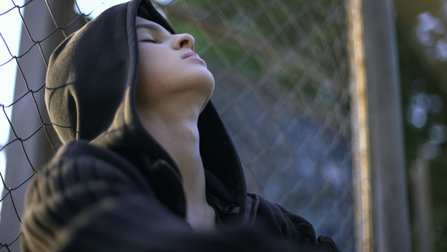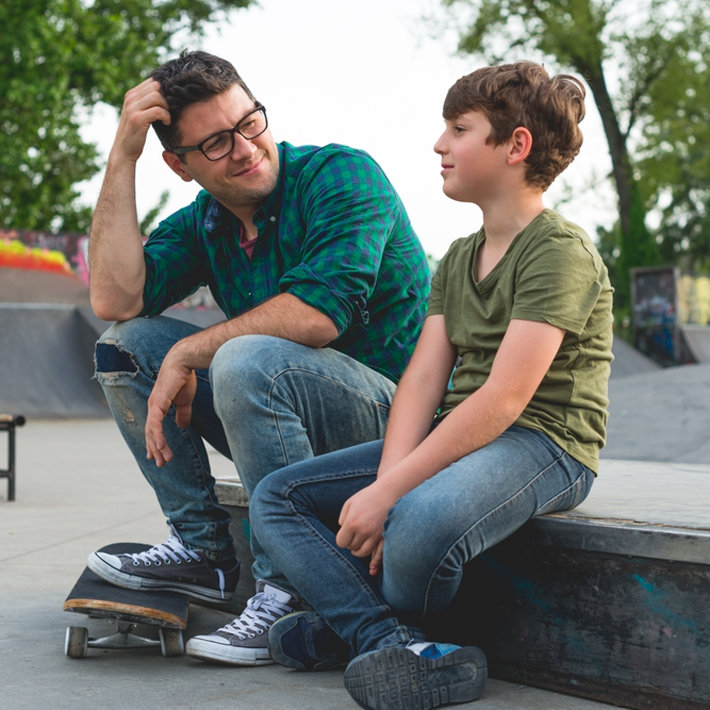Are Parents Doing Enough for Their Kids?
How Poor Parenting Could Lead to Drug Abuse amongst Our Youth

Parents want the best for their kids. That’s nothing new. Parents are always looking for ways to be better parents, constantly seeking tools and strategies for adjusting their parenting in the best way possible.
One of the top worries that parents have right now is that their kids (regardless of age, really) will end up misusing drugs and alcohol (or that their kids might already be doing this). Substance abuse is one of the top health concerns of the 21st century—a problem which threatens young people just as much, if not more so, than it does grown adults.
Parenting Errors That Can Lead to Teen Drug Use
At this point, we know that there is a direct link between the environment a child grows up in and the odds of that child growing up to misuse drugs and alcohol. We’ve known for some time that children who grow up with parents who misuse drugs and alcohol are significantly more likely to themselves misuse drugs and alcohol.
But now we are starting to see that parents don’t even need to misuse drugs and alcohol to unwittingly be taking specific actions which could result in their kids abusing drugs. In the ever-present effort of parents to do the best job that they can in raising their kids, it’s essential for them to know what they might be doing (or not doing, as the case may be), which is contributing to substance abuse risk for their kids.
The Huffington Post has an article on five things that parents do (or don’t do) that might contribute to children experimenting with drugs and alcohol. We’ve included those below, as well as other habits or actions that parents should watch out for.
- Failing to monitor your child’s activities: There was once a day when kids could play outside and roam the neighborhood after school and on the weekends. Most parents still feel this is the case because this is how it was when they were kids. But this isn’t the case anymore. Drug use is so prolific in the U.S. today that parents need to keep track of their kids at all times.
- Leaving prescription drugs with easy access: One of the most common ways that young people get their first exposure to drug experimentation is with prescription drugs that they find in the family medicine cabinet. Keep all medicines under lock and key.
- Not talking to your kids about the dangers of drug abuse and alcohol misuse: Parents must discuss drugs and alcohol with their kids. They must discuss the inherent risks with using such substances. Kids who know the truth about drug and alcohol experimentation are much less likely to take risks by using such drugs.

- Ignoring the underlying issues that lead young people to experiment with substances: Parents need to keep an eye out for the mental and behavioral health of their kids, too. Drug abuse does not just “happen.” Young people usually fall prey to some struggle or crisis within their own lives that precipitates drug use. With that in mind, parents need to stay in touch with their kids and help them through whatever struggles that they come across.
- Not staying sober yourself: This is a big one. Parents must set a good example by creating and maintaining sobriety within their own homes and among all of their family members.
- Attempting to convince yourself that it’s okay for kids to “experiment”: This is an old story and one which doesn’t work anymore, if it ever did. Parents sometimes tell themselves that it is “okay” if their kids experiment with drugs and alcohol. It’s not okay, and it has never been.
- Waiting to get help, thinking that a problem will “solve itself”: If your son or daughter has already started misusing drugs and alcohol, don’t wait to intervene to get them help. This is not a “phase.” It won’t resolve itself. It will only get worse.
Statistics from the Columbia University’s National Center on Addiction and Substance Abuse
Columbia University performed a research project into various poor parenting habits that parents might not even know about which, nevertheless, could lead to teens experimenting with drugs and alcohol. Their research (a compilation of surveys and data collection) was summarized in WebMD, and we’ve included some of the data here:
- According to the research, about half of 12 to 17-year old youth said they left their homes regularly on school nights to go hang out with their friends. However, when parents were asked about their kids’ school night habits, only 14% of parents said their kids went out on school nights. So this tells us that kids are going out on school nights and parents don’t even know about it or don’t care to know.
- One-third of teens said that their friends could easily get prescription drugs from a parent’s medicine cabinet. Another third said pills could easily be obtained from other friends or classmates. So two-thirds of teens believe that they could almost effortlessly have access to pills, if they wanted to.
- One in four teens said that they knew a parent of a friend or a parent of a classmate who smoked marijuana. One in ten of those teens said they knew a parent who smoked pot with teenagers.
- For the first time in history, more teens feel that prescription drugs are easier to get hold of than alcohol. The percentage of teens who think it is effortless to get hold of prescription drugs has increased by 46% in the last year alone.
“Kids are getting these drugs from their homes or their friends’ homes, but there is a tremendous disconnect or
denial among parents about this.”
Former U.S. Secretary of Health, Education and Welfare, Joseph A. Califano stated: “Kids are getting these drugs from their homes or their friends’ homes, but there is a tremendous disconnect or denial among parents about this.”
Parents have to step up to the plate on this one and recognize that the U.S. is suffering from a terrible substance abuse epidemic and that this epidemic threatens their very children with a high risk for substance abuse.
Looking at the Long-Term Implications of Poor Parenting
Parents in the 21st century need to do more, particularly when it comes to preventing their kids from experimenting with drugs and alcohol. This is too big a problem to ignore. Parents need to take a moment and examine their parenting. Most parents who could be held accountable for “bad parenting” are unaware of it. This is why parents everywhere need to take a minute and honestly consider their parenting trends.
Sources:
Reviewed and edited by Claire Pinelli, ICAADC, CCS, LADC, RAS, MCAP


